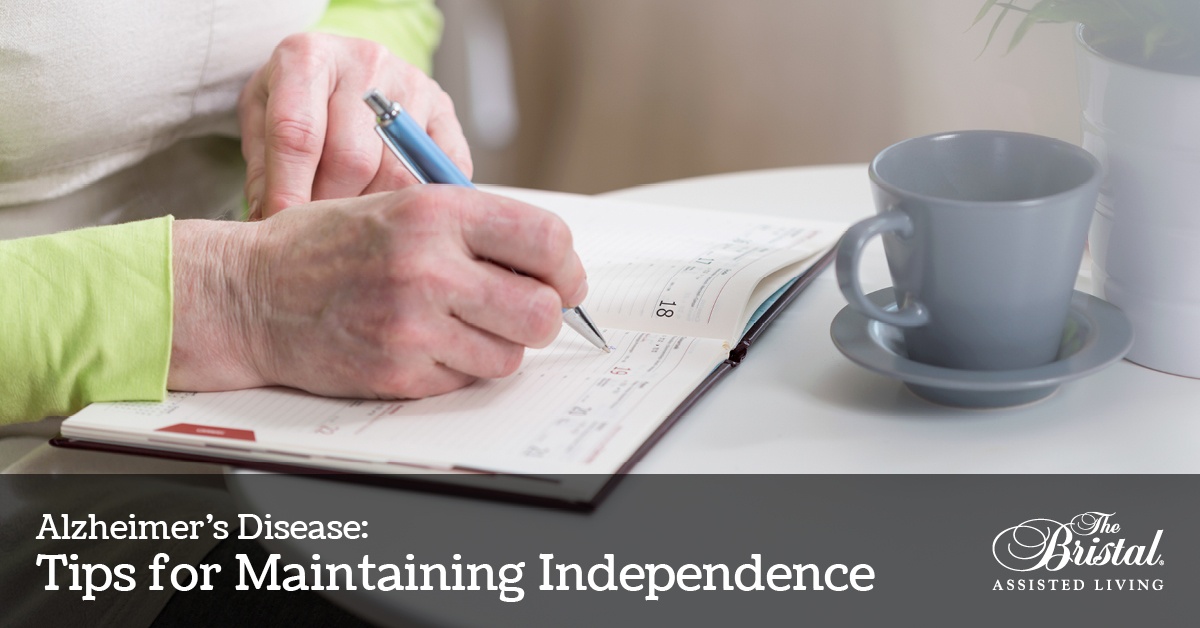People with early stage Alzheimer’s disease may notice impairment in language, memory, insight and social skills. The changes in ability to remember, follow instructions and carry out tasks that used to be routine, can become challenging. “Accepting changes in your abilities and adapting new coping skills can help you restore balance to your life…,” says the Alzheimer’s Association. In doing so, you can better remain active and retain a sense of control over your life.
What does a coping strategy look like?
- Focus on what daily or frequent goals are most important to you. Be realistic about what you can still do. Make lists of the steps necessary to carry out a routine, such as writing checks or going online to pay bills, shopping for groceries and so on. Recruit help from family, friends or caregivers when you need it in order to help make the tasks less stressful to carry out.
- Stay on a daily routine, with a written schedule of what you want to accomplish and when. This can help you prevent mistakes and omissions.
- Do one thing at a time, and rather than trying to tackle multiple things on one day, try to complete each task before you start another. Take breaks if necessary.
- Make time for activity and pleasure—go outdoors if you can, keep your body moving on a regular basis, and do the things you’ve always enjoyed.
- Accept help from others. Though it may seem like a show of vulnerability, seeking help actually adds to your abilities to remain independent and in control.
Specific ways to stay organized:
Small steps to stay organized can be a big help. Keep a notepad or paper, calendar and/or diary and record everyday tasks, to-dos and things you want to remember later. Have a bulletin board where you and those who live with you or care for you can post reminders, schedules, etc. Label things you use often to identify them and show where they are stored. Get a clock that shows the date and day as well as the time. Select one place to put things, such as keys, glasses and a wallet, so you can always find them as you come in or out.
Maintain a personal phone/address book and be sure that contact information for family, friends, healthcare professionals and services you use often are all in one place and well-organized. Enter all of your important phone numbers and email addresses in your smart phone; ask someone to help you if necessary.
When it comes to medications, a pill box is a must. Set it up each evening for the next day’s dosages. Ask your caregiver to remind you when to take your next dose; if you use a smart phone or other device, set up electronic reminders. Use a pad of sticky notes to mark each medication bottle after you have removed the daily dose from each and put it in your pill box.
Related article: Medication Management Tips for Seniors
Technology tips to help stay safe:
- Make sure that you have smoke and carbon monoxide detectors installed in your home and they are working.
- Consider wearing a medical alert device that calls for help when you cannot reach a telephone.
Finally, be willing to evaluate how you’re doing, and make alterations when called for. Ask yourself if your daily goals are still practical—should any be added or dropped? Is there a better way to do something that will make you feel more in control? As you live with Alzheimer’s disease, each day presents new challenges as well as new chances to continue to feel independent.



